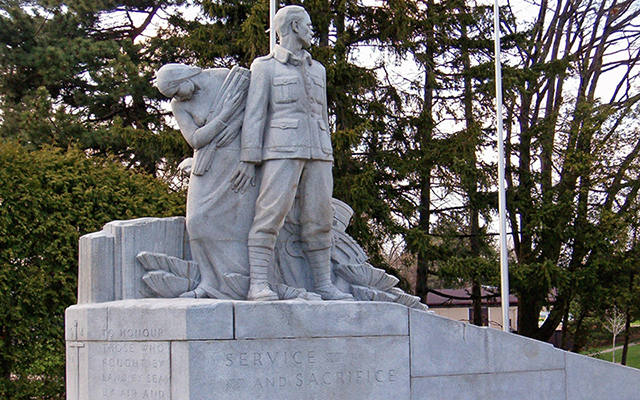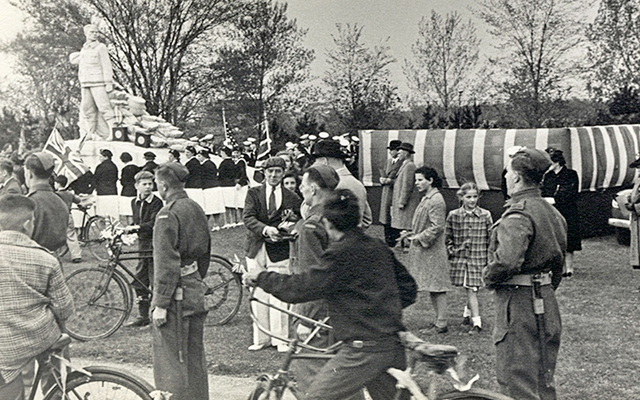Welland Crowland War Memorial
The Welland Crowland war memorial is the last large World War I memorial erected in Canada. It was built with more than $36,000 in subscriptions collected from the people of Welland and Crowland at the height of the Depression. A significant piece of Canadian sculpture, the war memorial was created by artist Elizabeth Wyn Wood, winner of a national competition for the project.
The monument was executed in LaCass granite from Quebec and cut to size by the Thomson Monument Company in Toronto from a full-sized clay model by Wyn Wood. Louis Temporale completed the piece’s fine surface carving.
Welland’s World War I memorial is unique in that it departs from the design of a single soldier common on other vintage monuments and instead incorporates stylized elements of red pine and wheat sheaves with the representation of a First World War trench mortar.
Two heroic figures — a soldier and a woman — symbolize the service and sacrifice of those who fought and those who supported the war effort at home. It was unveiled one day after the start of World War II on September 4, 1939, by Lieutenant Colonel Archdeacon F. G. Scott, D.S.O., senior chaplain of the First Canadian Division during World War I and noted Canadian poet.
Contact
- Heritage Advisory Committee
- Civic Square,
60 East Main St., Welland, ON L3B 3X4 - info@wellandheritage.ca

